Blocked drains can be a frustrating and disruptive problem in any household. From slow-draining sinks and foul odours to overflowing toilets and water damage, drain blockages can cause significant inconvenience and even lead to costly repairs. However, with a little knowledge and preventive action, you can significantly reduce the risk of encountering drain blockages and maintain a healthy and efficient plumbing system. Understanding the causes of drain blockages is the first step in preventing them. Accumulated debris, such as hair, food particles, and soap scum, is a common culprit. Grease and oil solidify in pipes over time, trapping other substances and causing clogs. Mineral buildup from hard water can also restrict the flow of water. Additionally, foreign objects, tree roots infiltrating pipes, and improper disposal of non-biodegradable items can contribute to blockages.
Regular maintenance and inspections are crucial in preventing drain blockages. Scheduling routine checks by a professional plumber can help identify and address any underlying issues before they escalate into major problems. During these inspections, the plumber can clean the drains, remove any buildup, and ensure that the pipes are in good condition.
Being mindful of what goes down the drain is another essential preventive measure. Avoid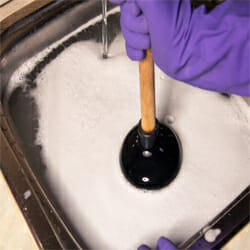
Flushing your drains with hot water regularly can help remove accumulated debris and keep the pipes clear. After each use, run hot water down the drain for several minutes to ensure that any residual waste is washed away. In the following sections, we will explore various preventive measures in detail, including the use of baking soda and vinegar, enzyme cleaners, proper hair disposal, outdoor drain maintenance, and the importance of landscaping. By incorporating these strategies into your routine, you can minimise the risk of drain blockages and ensure the smooth flow of water in your home.
By implementing these simple yet effective measures, you can save yourself the headache of dealing with clogged drains and maintain a healthy plumbing system for years to come. Let’s dive deeper into each preventive measure and discover how they can help keep your drains clear and your home running smoothly.
Understanding The Causes Of Drain Blockages
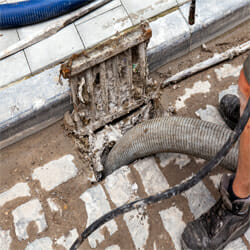
Read More: How to Fix a Blocked Drain
1. Regular Maintenance And Inspections
Regular maintenance and inspections are vital for preventing drain blockages. Scheduling routine checks by a professional plumber can help identify any potential issues and address them before they escalate into major blockages. During these inspections, the plumber will thoroughly clean the drains, removing any accumulated debris and buildup. They will also ensure that the pipes are in good condition and free from any potential obstructions. By having regular maintenance and inspections, you can proactively tackle any minor concerns and keep your drains in optimal working condition. This preventive approach not only helps prevent blockages but also extends the lifespan of your plumbing system, saving you from expensive repairs and replacements down the line.
2. Be Careful About Whatever Goes Down The Drain
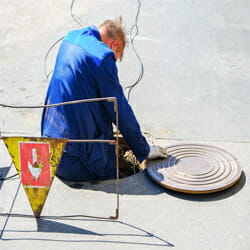
3. Dispose Of Grease Properly
Proper disposal of grease and oil is essential for preventing drain blockages. Grease and oil may be liquid when poured down the drain, but they can solidify inside the pipes and accumulate other debris, leading to clogs. Instead of pouring them down the sink, collect grease and oil in a heat-resistant container, such as an old can or jar, and dispose of them in the trash once they solidify. It’s important to let the grease cool and solidify before disposal to avoid potential spills or leaks. By adopting this simple practice, you can protect your drains from the damaging effects of grease buildup and help maintain a smooth flow of water in your plumbing system.
4. Install Drain Guards And Strainers
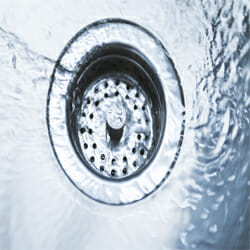
5. Utilise Hot Water Flushing
Flushing your drains with hot water regularly is a simple yet effective way to prevent blockages. Hot water helps melt and wash away accumulated grease, soap residue, and other substances that can solidify and create clogs. After each use, run hot water down the drain for several minutes to ensure that any residual waste is flushed away. This practice is particularly beneficial for kitchen sinks where grease and food particles are common culprits for blockages. Remember to use caution when handling hot water and ensure that your pipes can withstand high temperatures. By incorporating hot water flushing into your routine maintenance, you can help keep your drains clean and flowing smoothly.
6. Employ Baking Soda And Vinegar
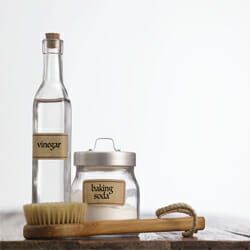
7. Try Enzyme Cleaners
Enzyme-based drain cleaners are an environmentally friendly alternative to harsh chemicals and can be effective in preventing drain blockages. Natural enzymes in these cleansers break down organic debris such as hair, soap scum, and food particles, helping to keep your drains clear. Enzyme cleaners are typically available in liquid or granular form. To use them, follow the instructions on the product packaging, usually involving pouring the recommended amount of cleaner down the drain and allowing it to work for a specified period. Enzyme cleaners are generally safe for most types of pipes and septic systems, making them a reliable option for regular drain maintenance. By incorporating enzyme cleaners into your cleaning routine, you can proactively prevent the buildup of organic matter and minimise the risk of blockages in your drains.
8. Avoid Chemical Drain Cleaners

9. Regularly Clean Shower And Bathtub Drains
Shower and bathtub drains are prone to clogging due to the accumulation of hair, soap residue, and other debris. Regularly cleaning these drains is essential in preventing blockages and maintaining efficient water flow. To clean shower and bathtub drains, start by removing the drain cover or stopper. Using gloves or a small tool, manually remove any visible hair or debris from the drain opening. Next, clean the drain cover or stopper thoroughly to remove any buildup. If necessary, use a brush or old toothbrush to scrub away stubborn residue. After cleaning, rinse the drain and cover it with hot water to flush away any remaining debris. Performing this cleaning routine every few weeks or as needed can help keep your shower, and bathtub drains clear and prevents potential blockages.
Read More: Why Do My Drains Gurgle?
10. Proper Waste Disposal

11. Properly Dispose Of Hair
Hair is a common cause of drain blockages, particularly in bathroom drains. To prevent hair from clogging your drains, use a drain cover or trap to catch loose hair before it enters the plumbing system. These devices are easily available and can be placed over the drain opening in showers and bathtubs. After showering or bathing, remove the trapped hair from the drain cover or trap and dispose of it in the trash. Regularly cleaning the drain cover or trap will also help maintain its effectiveness. Additionally, consider brushing your hair before showering to remove loose strands and reduce the amount that ends up in the drain. By properly disposing of hair, you can significantly reduce the risk of blockages and keep your drains flowing smoothly.
12. Outdoor Drain Maintenance

Related Articles:
13. Maintain Proper Landscaping
Proper landscaping plays a significant role in preventing drain blockages, particularly from tree roots. Avoid planting trees or shrubs near your drainage system’s underground pipes to prevent root infiltration. Tree roots are naturally attracted to sources of water and nutrients, which can lead them to invade your pipes and cause blockages. Consult with a professional landscaper to determine the appropriate distance between your drainage system and any vegetation. They can recommend suitable plants that have non-invasive root systems and won’t pose a threat to your plumbing. Additionally, consider installing root barriers around your underground pipes as an extra precaution. By maintaining proper landscaping, you can minimise the risk of root-induced blockages and ensure the integrity of your drainage system.
14. Seek Professional Help When Needed

Conclusion
In conclusion, preventing drain blockages requires a combination of awareness, routine maintenance, and mindful habits. By understanding the causes of drain blockages, such as accumulated debris, grease buildup, and foreign objects, you can tailor your preventive measures accordingly. Regular maintenance and inspections by professional plumbers are crucial in identifying and addressing potential issues before they escalate. Being mindful of what goes down the drain, including proper grease disposal and avoiding non-biodegradable waste, helps minimise the risk of blockages. Installing drain guards and strainers, flushing drains with hot water, and utilising natural solutions like baking soda and vinegar or enzyme cleaners can further prevent clogs.
Taking care of outdoor drain systems, which involves tasks like gutter and yard drain cleaning, as well as maintaining well-kept landscaping, plays a vital role in preventing blockages caused by debris buildup and the infiltration of invasive tree roots. Proper disposal of hair and seeking professional help when needed are also essential components of a comprehensive approach to drain maintenance.
By incorporating these preventive measures into your routine, you can significantly reduce the likelihood of drain blockages and maintain a smoothly functioning plumbing system. Preventive action not only saves you from the inconvenience of clogged drains and potential water damage but also extends the lifespan of your pipes, reducing the need for costly repairs or replacements.
By adopting these preventive measures and cultivating mindful habits, you can ensure the efficient flow of water in your home’s drains, saving yourself time, money, and unnecessary stress. By taking proactive steps, you can enjoy a clean and healthy plumbing system, keeping your home running smoothly for years to come.

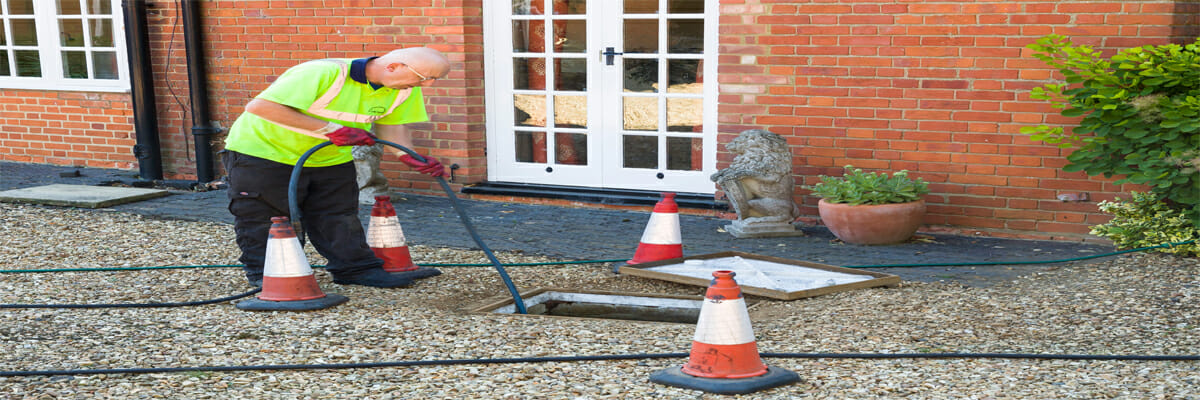
 Enquire
Enquire